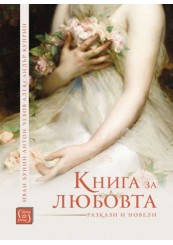Ivan Bunin, Anton Chekhov, Aleksandr Kuprin
Ivan Alekseyevich Bunin (1870–1953) was the first Russian writer awarded the Nobel Prize for Literature. He was noted for the strict artistry with which he carried on the classical Russian traditions in the writing of prose and poetry. The texture of his poems and stories, sometimes referred to as "Bunin brocade", is considered to be one of the richest in the language.
Best known for his short novels The Village (1910) and Dry Valley (1912), his autobiographical novel The Life of Arseniev (1933, 1939), the book of short stories Dark Avenues (1946) and his 1917–1918 diary (Cursed Days, 1926), Bunin was a revered figure among anti-communist white emigres, European critics, and many of his fellow writers, who viewed him as a true heir to the tradition of realism in Russian literature established by Tolstoy and Chekhov.
Anton Pavlovich Chekhov (1860–1904) was a Russian playwright and short-story writer, who is considered to be among the greatest writers of short fiction in history. His career as a playwright produced four classics, and his best short stories are held in high esteem by writers and critics. Along with Henrik Ibsen and August Strindberg, Chekhov is often referred to as one of the three seminal figures in the birth of early modernism in the theatre. Chekhov practiced as a medical doctor throughout most of his literary career: "Medicine is my lawful wife", he once said, "and literature is my mistress."
Aleksandr Ivanovich Kuprin (1870–1938) was a Russian writer best known for his novels The Duel (1905) and The Pit, as well as Moloch (1896), Olesya (1898), "Junior Captain Rybnikov" (1906), "Emerald" (1907), and The Garnet Bracelet (1911), the latter made into a 1965 movie.


